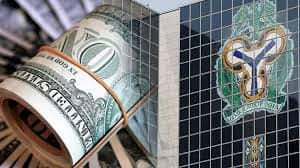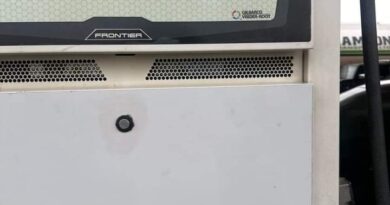Parents cry & lament as they struggle to pay school fees over dollar scarcity and high exchange rate
Investigations have shown that students who are studying abroad are currently facing crisis as their parents back here in Nigeria struggle to raise foreign exchange denominated in United States dollars to fund their school fees as scarcity of the greenback intensifies.
These are not the best of times for parents residing in Nigeria but who have children in foreign schools such as United States, United Kingdom, Canada and other foreign countries as they struggle to raise foreign exchange to fund their children’s education due to scarce foreign currencies amidst rising rates.
Parent of Students Studying Abroad Lament Forex Scarcity To Pay Their Kids’ School Fees
Some of the parents, who spoke to The Punch Newspaper on the development, expressed frustration at the falling value of the naira, which they had to use to purchase foreign currencies to pay the tuition of their children as well as other associated costs and living costs.
The naira traded at 915 against the United States dollar at the parallel market on Saturday, while the pound sterling was sold for N1,180.
At the Investors and Exporters’ forex windowr, the naira commenced trading at 773.29/$ on Friday and hit a high of 799.9/$ before closing at 778.42/$. The currency lost by 0.87 per cent compared to the N771.69 it exchanged for the dollar on Thursday.
The open indicative rate closed at N773.29 to the dollar on Friday. A spot exchange rate of N799.90 to the dollar was the highest rate recorded in the day’s trading before it settled at N778.42.
A total of 73.80 million dollars was traded at the Investors and Exporters’ window on Friday.
A businessman, Mr Kunle Olajide, whose son is in 200 level at a Cypriot university, lamented the stress he is facing paying the tuition and sending money to the Computer Science student.
Olajide stated, “Since the administration of President Bola Tinubu decided to allow the naira to float, it has not been easy to source forex for the purposes of paying my son’s tuition and sending upkeep allowance to him. My business is essentially naira-denominated and you know that the currency has been consistently falling and this is putting a lot of pressure on me. I am currently spending almost double what I was spending on him this time last year.
“I have filled Form A since mid-June to buy dollars at the official I&E rate, but my bank keeps complaining of not having the currency to sell to me. Even the exchange rate on that platform keeps rising. When my son mounted pressure on him about being denied access to the school portal, I had to go to the parallel market to buy $2,500 at N889. I understand that it is now over N900/$.
“Honestly, I don’t know how I will continue to fund his education going forward without crippling my business and affecting the rest of the family. I have two other younger children who are in private secondary schools here in Lagos. When they resume later in September, I will have to cough out a lot of money because the schools have increased the fees in line with the inflationary trend and the after-effects of the removal of subsidy on petrol by the Federal Government.”
A Lagos-based businesswoman, who has two of her children schooling in the United States, Mrs Adebusola Adeyinka, said before the floating of the naira, sourcing forex to pay for her children’s fees and meet other needs was nightmarish.
According to her, the older son, Tinuade, is studying at the University of San Diego, California, while the brother is rounding off his A-levels.
Adeyinka said, “Before now, I would have to apply for the purchase of dollars three months ahead. Earlier this year, when I knew I had to renew my children’s fees after summer, I applied for forex, and up until May, the bank kept pushing me around.
“I made sure I had enough naira in my account, but it was not just that. The officials in charge told me to keep checking with the bank to know when it would be my turn. They claimed that some people were in the queue before me, and the time was drawing closer for me to renew my first son’s accommodation.
“After a few weeks, the schools started harassing the children. I had the money in my account but it was in naira. The school needed dollars. My children were about to lose out on their admissions.
“I got frustrated and used a BDC (Bureau De Change) via peer-to-peer transactions, but the rate was so expensive. I had no choice but to use that option.”
With the floating of the naira, the mother-of-two said things became a bit stable.
“Apart from the ever-fluctuating rate, now, I just apply directly and get the forex within a defined time. The application is done to the CBN through my commercial bank at the official rate. Once the CBN approves, the bank sends the money to my sons’ respective schools and everybody is happy,” she added.
The father of a Medical student in the United States of America, Mr Olabode Rotimi, said he always made sure he applied for forex long before he would need to pay for his son’s fees.
“It is better the money is in the school’s account than for my son to be sent out of school. These foreign universities don’t listen to any complaint or understand the hitches we face here; they simply send your child back home if you can no longer afford to pay the fees,” he said.
On how he used to get the forex before the floating of the naira, he said, “I simply patronised Bureau De Change operators. They are more reliable. They will demand more money, but you are sure to get the forex remitted into your account in due time.





